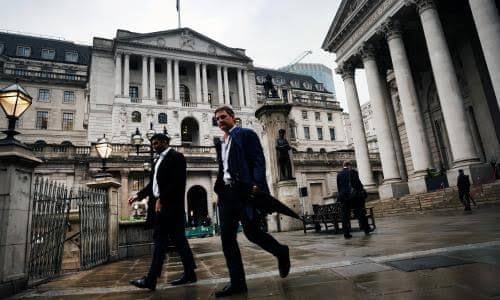UK Election Expected to Impact Stock Market

With less than six weeks until the UK General Election, analysts are eyeing the potential impact on the stock market, especially with polls suggesting a potential return of the center-left Labour Party after 14 years. Should Labour win, displacing the Conservative Party led by Prime Minister Rishi Sunak, markets could react positively.
Historically, UK stocks have shown varied performance following elections. Stocks tend to remain "relatively flat to down" in the six months after an election, excluding periods of financial volatility.
Sector-specific performance also shows trends, with defensive stocks and financials doing well post-elections, and energy stocks performing robustly regardless of the winning party. However, analysts note that the UK stock market has struggled during previous Labour governments due to external crises such as the Great Depression, post-war adjustments, the oil shock of the 1970s, the DotCom crash, and the Great Financial Crisis.
Labour leaders have emphasized fiscal discipline and debt reduction to attract business leaders and financial institutions. Meanwhile, senior bankers have suggested that the UK's political risk is minimal, with little difference in economic policies between the parties.
What Does This Mean for Me?
Regarding the British pound, past Labour governments have coincided with five significant crashes over the last century, largely due to broader economic factors. Analysts predict that the outlook for sterling and UK government bonds will be more influenced by interest rates rather than election results.
Historically, foreign exchange markets show minimal reaction to UK elections, with modest sterling gains expected. Future price movements are anticipated to align more closely with inflation trends and Bank of England rate policies.
More News
.webp)
Japan’s Rate Shift Is Rippling Through Global Bond Markets
1 week ago

China’s Growth Engine Stalls as Consumers and Investors Pull Back
1 week ago

Egypt’s Recovery Gains Traction as Household Pressure Lingers
2 weeks ago

OECD Warns AI and Tariffs Will Test the Global Economy
3 weeks ago

Zero Tariffs, Higher Drug Bills as US and UK Reset Pharma Trade
3 weeks ago

Catastrophe Bonds Go Global as Climate Risk Meets Yield Hunting
3 weeks ago
.webp)
Canada Shields Steel and Lumber Industries From Tariffs
4 weeks ago

Trump Drops Selected Tariffs in Response to Inflation Pressures
1 month ago